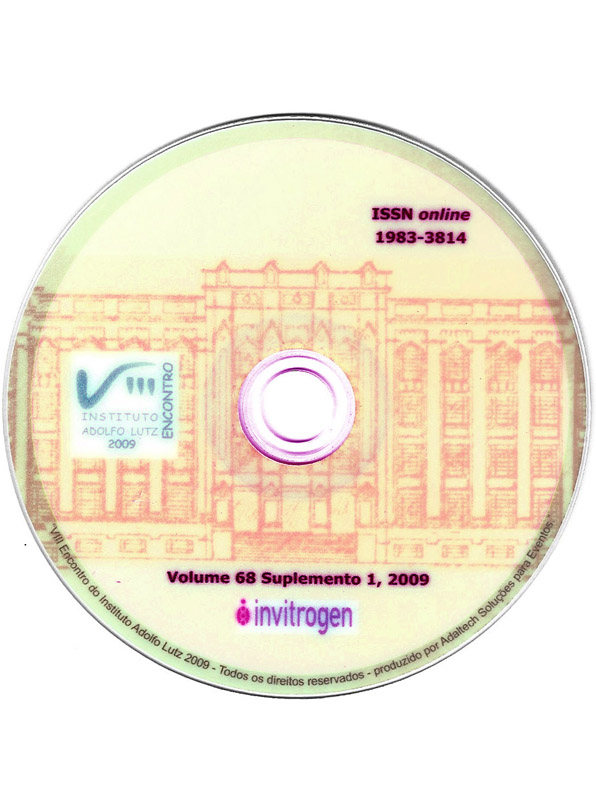Resumo
Groups A, B and C rotaviruses are associated with acute gastroenteritis in humans. The identification of group C has been less common and associated with sporadic episodes and outbreaks. Neither its disease role as a cause of acute diarrhea nor the clinical importance of this group of rotavirus is yet entirely established. The aim of this study was to investigate the burden of non-group A rotavirus gastroenteritis in São Paulo State, Brazil. From October 2007 to June 2008, 359 fecal specimens from patients with
gastroenteritis were analyzed in Adolfo Lutz Institute. The presence of non-group A rotavirus was investigated by PAGE, electronic microscopic (EM) and RT-PCR in stool specimens screened by a commercial ELISA assay. Of 359 fecal specimens tested by ELISA, 12 specimens (3.3%) were positive for group A rotavirus. An analysis of 235 (67.7%) stool samples negative by ELISA was performed by PAGE to identify possible non-group A rotavirus. Seven (3.0%) samples showed a typical group C rotavirus profile, and rotavirus particles by EM. The electrophoretic genome profile was similar among all 7 samples analyzed. These data was confirmed by RT-PCR using primers specific to the VP6 gene of group C rotavirus. The low rate of detection suggests that infection with group C rotaviruses is an uncommon cause of acute gastroenteritis among São Paulo State. Nevertheless, the last detection of group C rotavirus in São Paulo State occurred in an outbreak in 1993. To the best of our knowledge, this is the first report of group C rotavirus detected in São Paulo State in over-10 years’ period. The introduction of a rotavirus vaccine in Brazil in 2006, caused a decrease in rotavirus group A detection, and in the future, group C rotavirus may be assume an emerging epidemiological importance.

Este trabalho está licenciado sob uma licença Creative Commons Attribution 4.0 International License.
Copyright (c) 2009 A Luchs, DA Almeida, SG Morillo, JJ Kisielius, M Ueda, RCC Carmona, MCST Timenetsky
